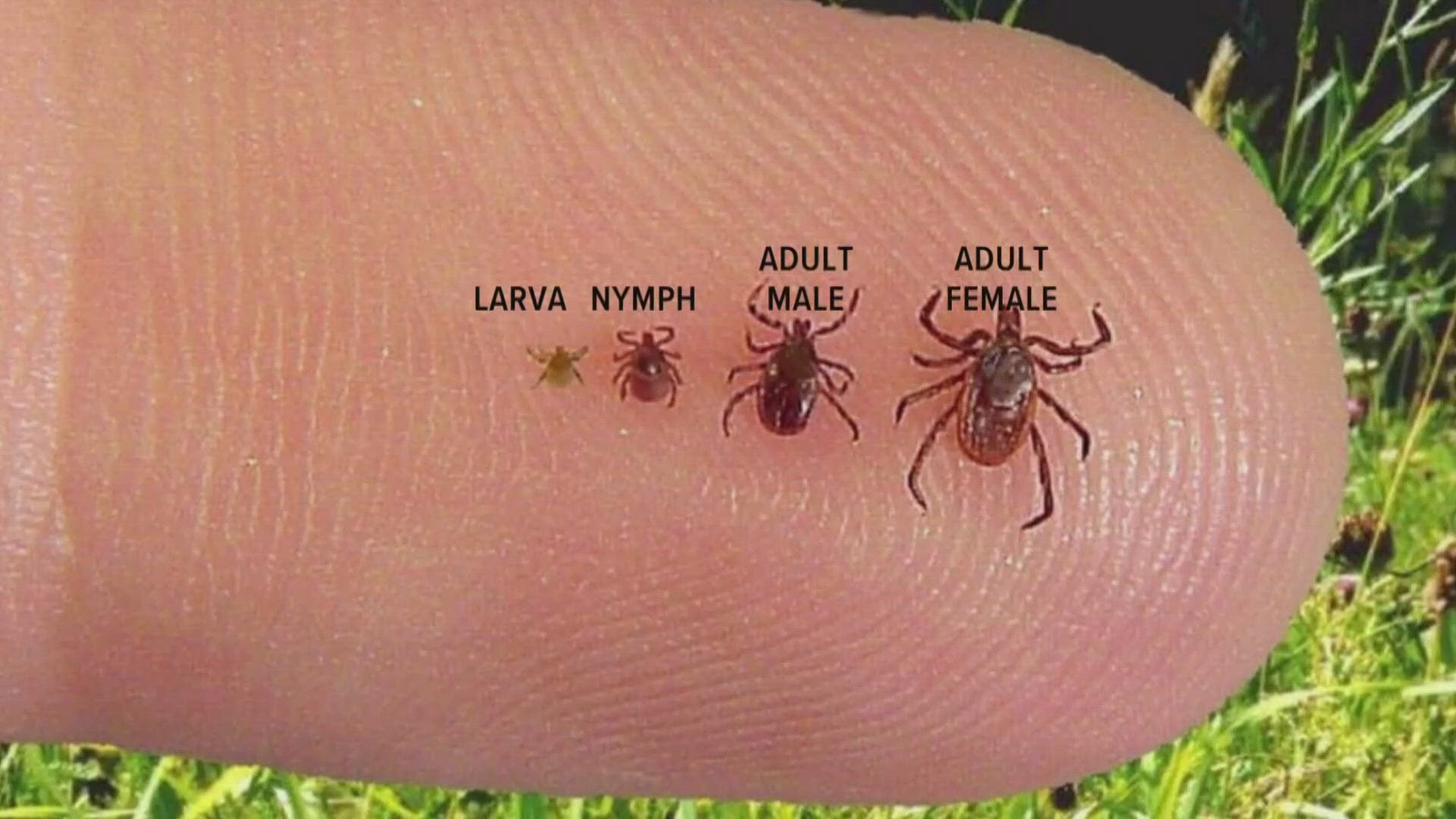YARMOUTH, Maine — People can get Lyme disease and other tickborne illnesses at any age, but experts say the diseases spread by deer ticks pose a greater risk for children and the elderly.
Seniors are being urged to take precautions as some doctors report they are seeing more tick-related infections in people over 65 this summer. Especially those with compromised immune systems may have a more difficult time recovering.
In April, Sue Bott's grandaughter found a young deer tick, known as a nymph, embedded in her back.
"It was like a pinprick, that tiny, and it left a very small red spot," Sue explained.
Sue immediately went to a quick care clinic. She didn't have any symptoms of Lyme, like a bull's eye rash. A blood test also turned up negative. But then she started having fevers on and off.
"A fever like 101 and no energy, and I'd sleep for two or three days," Sue added.
Sue has atrial fibrillation, or AFIB, which causes an irregular heartbeat. She started to have more severe symptoms that landed her at Maine Medical Center.
"I had high blood pressure and difficulty breathing," Sue said.
Doctors ran a full panel of tickborne diseases. Sue tested positive for a common tickborne infection known as anaplasmosis. Complications from the disease, including respiratory issues, can be life-threatening in older patients. The U.S. CDC recommends a two-tiered blood test for Lyme disease, but not for other tickborne infections. But doctors say patients can advocate for additional testing.
"Chronic medical conditions can be aggravated or worsened by Lyme disease and other tickborne symptoms," Dr. Scott Patch, a family physician at InterMed, explained. Sue is also his patient.
Dr. Patch has seen a spike in Lyme and tickborne illness cases in patients 65 and older. He said if you find an embedded tick, talk to your doctor, especially if you have flu-like symptoms. But unlike Lyme, with anaplasmosis and babesiosis, a bull's eye rash is not common.
"That sort of recurring fever, achiness, no rash, you're like,' Is this COVID or flu?' At this time of the year, those are less likely, and we're thinking it could be anaplasmosis and babesiosis," Dr. Patch stated.
Sue was treated with antibiotics and has made a full recovery. Every time she goes outside, she wears protective clothing, does frequent tick checks, and takes a shower after coming inside. Experts recommend following these precautions to stay safe.
For more information from the Maine CDC about preventing tickborne illnesses, click here.

